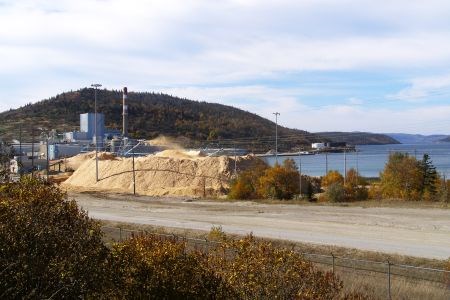The Town of Marathon is preparing to meet the needs of the mining industry with two new operations expected to come online within the next three years.
Barrick Gold, 40 kilometres west of Marathon, is in the feasibility stage of expanding its open pit at the Hemlo complex to extend mine life by 10 years.
And just north of the town of 3,300, Stillwater Mining is now in the environmental assessment and permitting stage of its Marathon PGM deposit, expected to be ready for open pit operations by 2015.
Daryl Skworchinski, Marathon's community services and economic development manager, has carried out a value-chain assessment to determine what does a mining economy look like, and how can Marathon fill the gaps on the supply side.
“Barrick was really helpful in letting us know where their purchasing comes from and now we're finalizing our action plan to hit the road and do some active recruiting at the (mining) shows.”
A hired consultant worked the floor at the Prospectors and Developers Association annual show in Toronto last spring and generated about 40 leads from mining suppliers either looking to expand, relocate or establish satellite branches.
“We see a real gap around technology,” said Skworchinski. “We really looked at the global perspective, not just Northern Ontario or Canada.
“We'll be following up in the next few months.”
Soft services like engineering and environmental consulting are generally done out of Thunder Bay or southern Ontario, so Marathon is looking at attracting companies like tire suppliers and is talking to the major equipment procurers like Barrick to determine if new suppliers can be brought to town.
The town is also preparing to host an influx of workers as these mine projects begin to ramp up.
Based on Stillwater's provided workforce numbers, Marathon can expect a construction force of 1,000 over a three-year period and a permanent operations crew of 350.
Community planning to handle that incoming population is ongoing.
“We're working with Stillwater and Barrick in looking at their accommodations needs, both short and long term,” said Skworchinski.
“We have 20 to 25 building lots available for housing now, serviced, cleared and ready to go.”
One subdivision, Penn Lake, established in the late 1980s, has a second phase on the books. But before proceeding, Skworchinski said the municipality will wait for Stillwater's official green light for the mine project.
“The housing development process would line up well with the announcement of a Stillwater build.”
To handle the training component, Marathon and Confederation College are exploring the establishment of an industrial training centre, which would include a business incubator with space for seven to 10 small startups.
The college's plan is to create “innovation hubs” across northwestern Ontario. Marathon's would be geared to the concept of social innovation, entrepreneurship, corporate responsibility and engagement of First Nations.
On the exploration front, Skworchinski calculates there are 74 active projects within 50 kilometres of town. One of those junior mining stars is Entourage Metals, a gold explorer that has a workforce of 25 based in town and is gearing up for a major summer exploration season.
“We also see a real fit here with some type of industrial redevelopment on the Marathon Pulp site.”
The former pulp mill closed in 2009 and anticipated new ownership will be required to do some site remediation.
Because a number of companies expressed interest in the 13-acre site, which includes a deep water harbour and commercial dock, a request for proposals on the property closed in March with the winning bidder expected to be named in June.
Skworchinski said it's possible that three to four businesses could be located there.
“Land development around the commercial and industrial side of things is a major priority for Marathon.”
One company that is a likely tenant is Protocol Biomass. The Toronto wood pellet company wants to set up shop in the harbour to manufacture and ship out torrefied wood pellets to European customers.
The potential $100-million operation would rely on access to Crown wood, but the province is slow in rolling out a new forest tenure model allowing area communities to manage, harvest and sell fibre. Marathon is a partner in this new Local Forest Management Corporation with Manitouwadge and Pic River First Nation.




